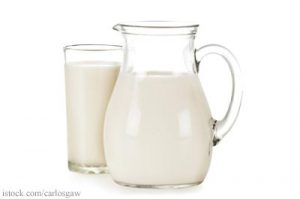According to the Salt Lake Tribune, there was a Campylobacter outbreak in Utah this summer linked to raw milk that sickened at least 80 people. Ropelato Dairy was the source of the contaminated milk. One man with a compromised immune system died after drinking the unpasteurized milk. State epidemiologist Cindy Burnett told members of the Legislature that of the 80 people sickened, 20% were hospitalized.
 Raw milk products sold in Utah must carry a warning label stating that anyone in a high risk group should avoid raw or unpasteurized dairy products. Ropelato Dairy did not put that warning on their products.
Raw milk products sold in Utah must carry a warning label stating that anyone in a high risk group should avoid raw or unpasteurized dairy products. Ropelato Dairy did not put that warning on their products.
In August 2014, the Utah Department of health said they were investigating a cluster of illnesses linked to the consumption of raw milk or cream purchased at Ropelato Dairy. The dairy’s license to sell raw milk was suspended on August 4, 2014 after several tests of raw milk samples taken at the farm were positive for Campylobacter. The dairy’s license was reinstated October 3, 2014. There are seven other raw milk dairies in the state.
Since 2009, there have been 14 documented outbreaks of Campylobacter infections associated with raw milk consumption in Utah. More than 200 people were sickened in those outbreaks. In this summer’s outbreak, most of those sickened were Utah residents. The ages of patients were from 2 to 74 years old. Most people got sick between May 9 and July 21, 2014. Symptoms of a Campylobacter infection include diarrhea that is often bloody, abdominal pain, vomiting, fever, and nausea. A serious complication of a Campylobacter infection is Guillain-Barré syndrome, which can cause paralysis.
In Utah, dairies that sell raw milk must test their product monthly for bacteria and pathogens, and animals must be tested every six months. The problem with these methods is that bacteria can clump together and be present in the milk but not be found in testing. It’s impossible to test every single milliliter of milk for pathogenic bacteria, which is why pasteurization is the only way to destroy dangerous bacteria in milk and milk products.




